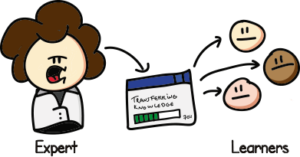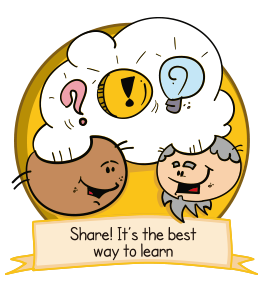by Alexandre Magno
Ok, Spotify here is just an example. My words could also be applicable for stories from any organisation, especially for the cool ones that have inspired people all over the world, like Netflix, Buffer, Semco, Valve, Zappos and so on.
Why is Spotify such a great example of company culture?
Particularly if you are in the agile or startup world, I’m sure you are aware of the stories around the Spotify engineering culture. How can you not be impressed hearing and reading the stories, watching their famous videos or talking to people working over there? It sounds like a really fascinating way to operate an organisation! More than that… the results that Spotify has achieved over the last five years is a source of inspiration that cultivates a perception that their processes and culture are at least partially responsible for such success.
Why shouldn’t you copy the Spotify Model?
The Spotify engineering culture — practices like squads, chapters, guilds, tribes, agile coaching, and a high level of team autonomy — is becoming more and more popular. Nice!
Just remember, practices that are being great for Spotify could be horrible for your team or organisation, because…well…You’re not Spotify.
For example, Spotify has replaced the “Scrum Team” term to “Squad” because they wanted to empower team to choose their own processes (Scrum, kanban, xp, ad hoc…) Is this level of empowerment something your organisation are looking for right now? If not, why call them squads?
Another example: for Spotify lacking practice standardization is not a problem, that’s why they support a cross-pollination culture. Is it also true for you organisation?
The so-called “Spotify Model” is the result (or product) of a learning journey led by Spotify employees and partners in order to create a useful process to help them (not you) to achieve their own business needs (not yours). And yes, they are still learning and changing this continuously — actually, by the time you are reading this, they may have changed or completely replaced one of the practices that you’re pushing people to copy at your organisation.
A product of #learning is hardly scalable. That’s why you shouldn’t copy @Spotify.
Learning30co on Twitter
Why should you copy the Spotify attitude?

On the other hand, it doesn’t sound quite clever to ignore all the great stories from such organisations and reinventing the wheel all the time just because “your organisation is different from others.” It sounds more than natural that learning from others’ mistakes and successes is a good practice, right? Yes, but…
What if we stop trying to copy the result of their learning journey and start to observe and copy the journey itself of how they built it? For example, what was the learning process that Spotify was following when they realised that a structure with tribes could be a great fit for them? Were they trying to copy a structure from another organisation? Or just following ideas from a book? Or were they challenging employees to propose ways to fix the specific problem, asking: “Our squads are autonomous but they must work together for the organisation sake. How to do this?”
I’m sure that by copying their learning process — the journey, not the result — you would arrive in a “Your Own Model” quite different from their model and much more in tune with your organisation needs. It resonates pretty much with the words from Aleem Walji, the former director of innovation at the World Bank, when he said that “Solutions may not always scale. But the process by which we experiment, learn and adapt can scale.”
If you know something about learning processes used by @Spotify while building their model, I highly recommend you to try copying it.
Further Reading: I don’t want to implement the Spotify Model!
A challenge to creative workers

I would like to invite you, creative worker, to pick one of the companies that inspire you and investigate a little bit more into their learning processes that allowed them to arrive at one of these practices or models that inspire you. Can you image how much you can learn from this research? Share your journey with us!
For example, let’s suppose that you are a fan of Basecamp’s culture, mainly because they practice remote working. The challenge is to go deeper on what was the problem that Basecamp was facing before they decided working remotely would solve it? What was their learning process? What were the other options they considered? Just keep asking more open-ended questions.
Further Reading: What Spotify learned from the flop of its app store
More about emergent learning processes
If you want to understand more about emergent learning processes and how to introduce it in your workplace by following the Learning 3.0 learning system, why not join us in one of our upcoming Learning 3.0 Camps? See you there!
Feature Photo: Rawpixel via Unsplash

